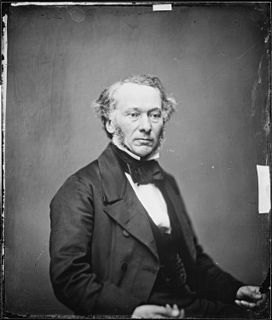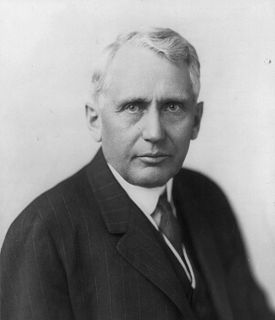A Quote by Richard Cobden
Treaties of peace, made after war, are entrusted to individuals to negotiate and carry out.
Related Quotes
Perhaps peace is not, after all, something you work for, or 'fight for.' It is indeed 'fighting for peace' that starts all the wars. What, after all, are the pretexts of all these Cold War crises, but 'fighting for peace?' Peace is something you have or do not have. If you are yourself at peace, then there is at least some peace in the world. Then share your peace with everyone, and everyone will be at peace.
There are two major peace agreements. One is a comprehensive peace agreement that was consummated by the extremely beneficial intersession of the George Bush administration, who called on John Danforth, the former senator from Missouri, to negotiate a peace agreement after eight years during which President Clinton did not want to promote peace in the Mideast - I mean, in Sudan. And that's holding so far.
If we are to reach real peace in this world and if we are to carry on a real war against war, we shall have to begin with children; and if they will grow up in their natural innocence, we won't have to struggle; we won't have to pass fruitless idle resolutions, but we shall go from love to love and peace to peace, until at last all the corners of the world are covered with that peace and love for which consciously or unconsciously the whole world is hungering.
When the war was in progress, England and France agreed wholeheartedly with the Fourteen Points. As soon as the war was won, England, France, and Italy tried to frustrate Wilson's program because it was in conflict with their imperialist policies. As a consequence, the Peace Treaty was one of the most unequal treaties ever negotiated in history.
War is harmful, not only to the conquered but to the conqueror. Society has arisen out of the works of peace; the essence of society is peacemaking. Peace and not war is the father of all things. Only economic action has created the wealth around us; labor, not the profession of arms, brings happiness. Peace builds, war destroys.
How then to enforce peace? Not by reason, certainly, nor by education. If a man could not look at the fact of peace and the fact of war and choose the former in preference to the latter, what additional argument could persuade him? What could be more eloquent as a condemnation of war than war itself? What tremendous feat of dialectic could carry with it a tenth the power of a single gutted ship with its ghastly cargo?
The twentieth century had dispensed with the formal declaration of war and introduced the fifth column, sabotage, cold war, and war by proxy, but that was only the begining. Summit meetings for disarmament pursued mutual understanding and a balance of power but were also held to learn the strengths and weaknesses of the enemy. The world of the war-or-peace alternative became a world in which war was peace and peace war.



































